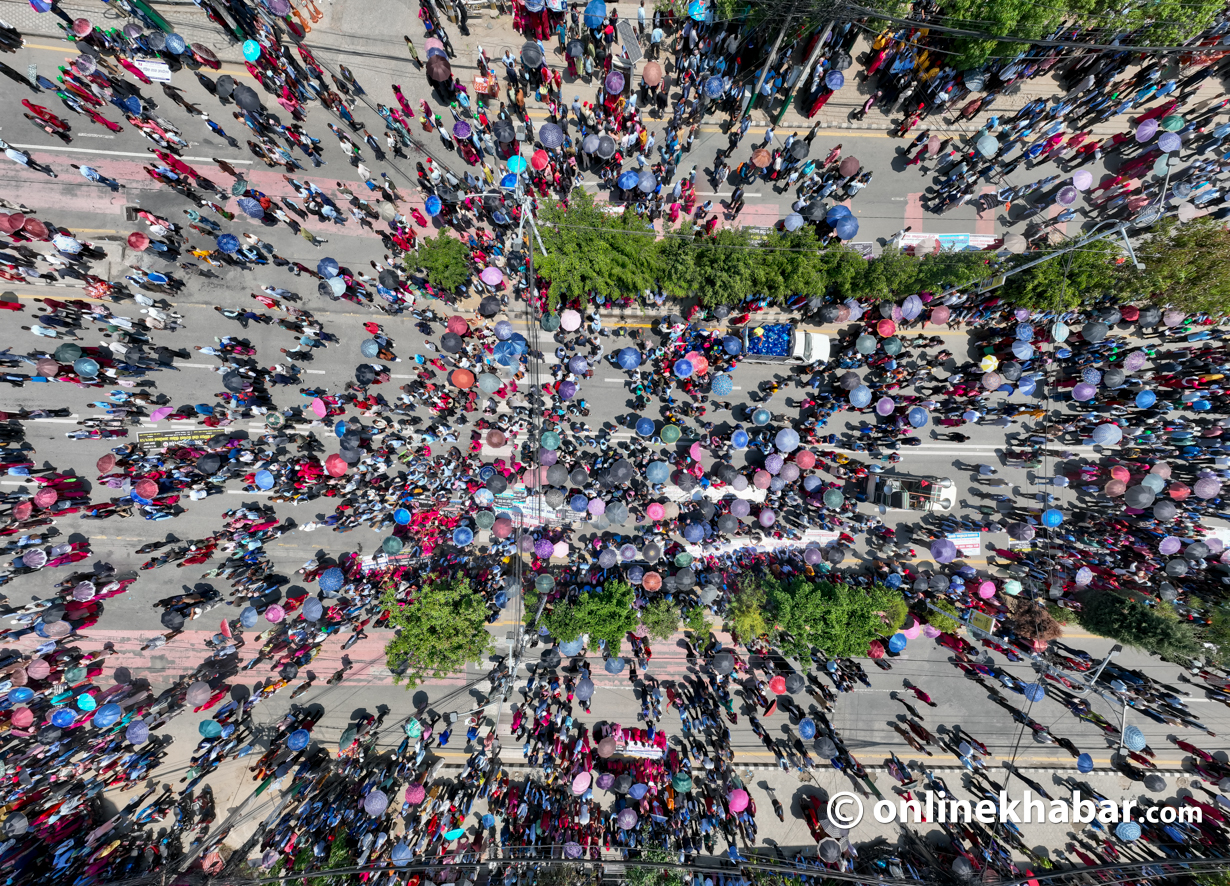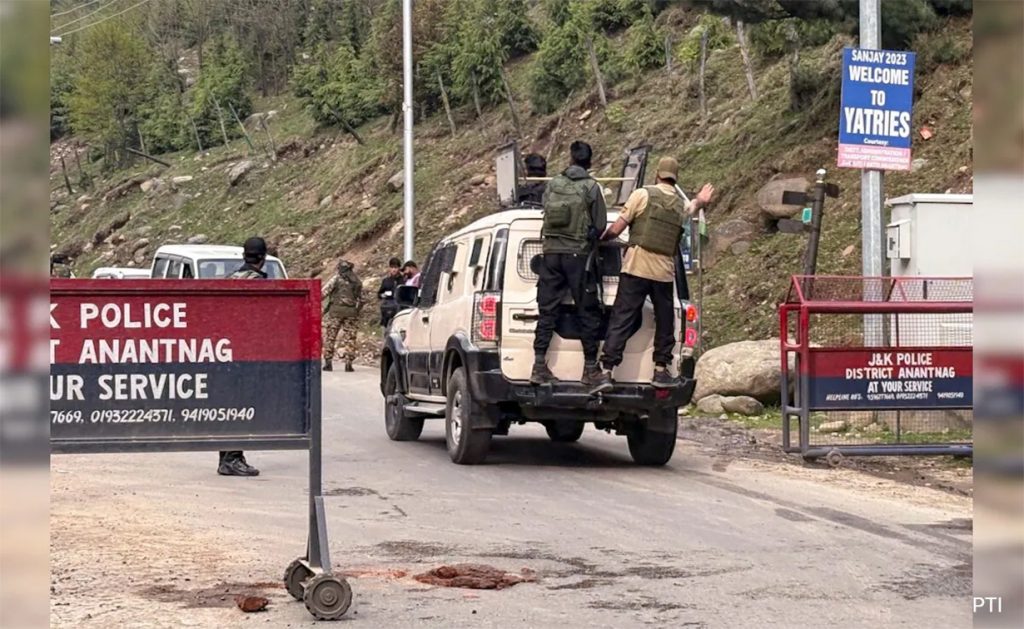
On March 26, the Ministry of Home Affairs issued a directive to all district administration offices to stop private vehicles from carrying passengers. The circular was issued at the request of transportation entrepreneurs.
Then the police began to crack down on ride-sharing services in Kathmandu. According to Asheem Man Singh Basnyat, the managing director of Pathao, a ride-sharing service, riders are still facing the question of the legality of the service on the road.
In early 2023, the Kathmandu Valley Traffic Police Office fined riders providing mobility services using apps like Pathao and InDrive by charging fares. Traffic police informed in a press statement that 20 people were prosecuted for carrying passengers on vehicles registered as private.
The Federation of Nepali National Transport Entrepreneurs had submitted a memorandum to the Ministry of Home Affairs demanding to stop carrying passengers on private vehicles as it is against the law.
Section 12 of the Motor Vehicles and Transport Management Act, 1993, has that a vehicle registered for one purpose cannot be used for another purpose. However, the federation says that private vehicles, in the name of ride-sharing services, are carrying passengers just like public transport.
It has been over six and a half years since ride-sharing services have been introduced in Nepal. However, there is no law to regulate them yet which makes them vulnerable to police crackdown frequently. Amid the rising popularity of such services, the government never looks serious to give them legal recognition or ban them completely.
Unsettled forever

Tootle, a Nepali company began ride-sharing services on motorcycles and taxis in early 2017. It means it has already been six and a half years of its service. However, the Department of Transport Management says that it is illegal to collect fares and carry passengers on private vehicles
From January 18, 2019, the traffic police started taking action against ride-sharing services at the request of the department. However, then Prime Minister KP Sharma Oli directed them to stop the action on November 20, 2019, stating that innovation should be encouraged after the service users strongly protested the government’s move on social media.
However, the department warned that vehicles registered for private purposes would be prosecuted, later.
After that, a Pathao rider was fined by the traffic police. After protests from the public, the then Transport Minister Basanta Nembang interfered and stopped the action.
On March 20, 2020, after the taxi entrepreneurs besieged the office against ride-sharing services, the Transport Management Department issued a notice at midnight and said again, “Those vehicles registered for various purposes other than public vehicles should not be used as public vehicles. Otherwise, action will be taken.”
Again there was opposition to the government’s move. On March 12, 2020, the Patan High Court, hearing the petition filed by the Nepal Metre Taxi Association, gave an order not to stop the ride-sharing services immediately and to allow it to run by making the necessary laws.
Even after that, the tendency of government agencies to issue notices to stop the ride-share services, arrest the riders and not work on the necessary law is still the same. As the passengers themselves raise their voices in favour of such services, there is a moral crisis for the government to ban them.
Increasing safety concerns

The government is indifferent to legalising ride-sharing services by amending the Motor Vehicles and Transport Management Act, 1993. In recent times, private motorbikes have been rampant in carrying passengers without using ride-sharing apps, and the activity is known as offline rides.
Such a practice has flourished due to the greed to earn a little more for the rider and save some money for the passengers. However, it is seen that this service can become a trap for both passengers and riders in terms of security. Riders get up to 20 per cent profit from offline ride-sharing services. Apart from the fact that the rider can be easily found, there is no benefit for the passengers.
However, some passengers end up bargaining because the fare is a few rupees cheaper than online. Passengers are forced to go to crossroads in search of offline rides after not being able to take a ride when requested through the apps.
But offline rides have made security matters more complicated in the evening and at night than during the day. In offline rides, there is a risk for both the rider and the passenger. There is a high chance that their safety can be compromised. The risk of misbehaviour, abduction, robbery, and even terrible crimes has increased. Once, the rider has also been abducted and robbed.
The regulation of ride-sharing services has been highlighted once again after a man using such a service was allegedly involved in the recent Nira Pandey murder case in Kapan, Kathmandu.
Loss to the government
Due to the non-regulation of ride-sharing services, the government is also losing the tax it could get. For example, once the services are legally recognised, the government could collect income tax from service providers.
Likewise, the Office of the Auditor General has drawn the attention of the government saying that even companies that are not registered in Nepal are evading taxes by providing passenger transportation services.
Public transport operators and taxi drivers have repeatedly attacked ride-sharing operators for taking away their passengers. Differences and disputes between public vehicles and riders are adding to the challenge.
Ride sharers are also confused about the technical standards of motorcycles, the minimum standards to be followed while providing services, and insurance after an accident. It also makes ride-sharing service users unsafe.
There is no government mechanism to resolve disputes between passengers and riders. There is no rule about the 24-hour customer care centre that the service provider must maintain. The police are also facing problems in tracing the criminal incidents of ride-sharing services. There is no rule about rent and commission.
Extreme negligence by the government

Yet, the government is unable to stop ride-sharing services due to their growing popularity. Nonetheless, it is hesitant to legalise the services as well.
In the Bill to Amend Some Nepal Acts, there are proposals such as increasing the licence period from five to 10 years in the Transport Management Act and allowing the private sector to check vehicle pollution. However, the issue of regulating the ride-sharing services, pending for six and a half years, has not been prioritised this time either.
Prime Minister Pushpa Kamal Dahal’s CPN-Maoist Centre had announced in its manifesto for the November 2022 elections that it would give legal recognition to services such as Tootle, Pathao and InDrive. However, after coming to power, the Maoists have forgotten their election promises.
According to Basnet, the managing director of Pathao, there might be a vested interest of certain groups behind the government’s failure to recognise ride-sharing services. “Earlier, we believed the government’s statement that it could not be done due to the pandemic,” he says, “Yet nothing has been done on the legal aspect yet.”
Many ride-sharing services such as Pathao are registered with the government. Initially, such companies, which were in dispute for not coming under the value-added tax (VAT), have now come under the scope of revenue. But these services are not regulated from the legal aspect of transportation management.
Transport expert Ashish Gajurel says that the government’s style of not improving the public transport system and not giving legitimacy to the ride-sharing services preferred by the users is wrong.
He says that if the services that have emerged through the use of technology are not addressed through the law, distortions and adverse effects cannot be seen in such services in the future.
Gajurel says that the government’s tendency to settle disputes and then sit with its hands tied when there is a problem will not provide a long-term solution. “If the problem persists, there is a danger that this service will become ineffective, substandard and unsafe,” he says.
Provincial governments’ failure
Provincial governments are also failing to recognise ride-sharing services as the federal government.
The Bagmati provincial government has made arrangements in its Transport Act to legalise Tootle and Pathao so that private vehicles can be operated as public vehicles by charging a specified fare in the specified area. According to the provincial government, this provision has been made because the management of transportation (four-wheeled and two-wheeled) is on the list of rights of the province in the schedule of the constitution.
Published in the provincial gazette on February 1, 2019, the provision states, “Four-wheeled and two-wheeled vehicles with registration certificates for non-commercial purposes can transport passengers after completing the prescribed procedure and taking the prescribed fare on their route and carrying passenger insurance.”
The provincial government had arranged for companies providing ride-sharing services to be registered by mid-April 2023. Through the Economic Bill, the government made a mandatory provision to register vehicles used for the purpose of renting vehicles with private numbers.
However, this arrangement has also become confusing after transportation entrepreneurs raised questions. After the entrepreneurs said that the law of the province should not conflict with the federal law, the provincial government is also not convinced about the law of compulsory registration.
Ishwari Datta Paneru, the spokesperson of the Department of Transport Management, says that ride-sharing services can be legalised only through provincial; laws. “Federalism was not envisioned in the current law, but according to the constitution and work detailing report, many transport-related services and regulations have been done by the provincial government,” he says, “Provinces can legalise ride-sharing services.”
Asman Tamang, the secretary of the Ministry of Labour, Employment and Transport of the Bagmati province, says, “We are discussing the draft of the procedure; many arrangements have to be made to organise ride sharing.”
Paneru, the spokesperson of the Department of Transport Management, says that in the draft of the new Federal Transport and Vehicle Act, an arrangement has been proposed to legalise ride-sharing services
This story was translated from the original Nepali version and edited for clarity and length.
























